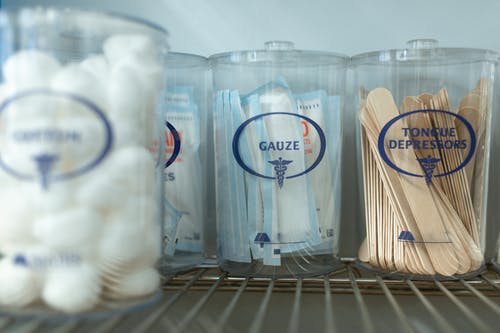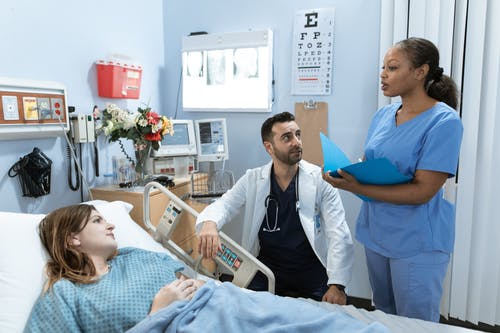Private oversight makes it hard to track COVID preparedness.
Hospitals, like the one in Riverside, California – Riverside Community Hospital – with high rates of COVID-19 patients typically aren’t being held accountable for exposure issues due to gaps in oversight should a patient be admitted and not be given an immediate diagnosis of the coronavirus. Medicare officials found they could not force private accreditors, which nearly 90% of hospitals pay to provide oversight, to do infection-control inspections. Thus, Riverside and nearly 4,200 other hospitals did not receive COVID-focused inspections as the pandemic began spreading throughout the nation.
Judi Evans, who formerly starred on the soap opera daytime drama “Days of Our Lives,” remember her experience in the hospital in the early days of COVID-19. She said was being treated from a fall off a horse and she was taken to a room to eliminate blood from a compressed lung where another mask-less patient was crying out that “he didn’t want to die of COVID.”

She added that no one had told her to wear a mask. “It didn’t cross my mind, as I’m in a hospital where you’re supposed to be safe,” Evan, 57, said. A week later, she tested positive for the virus and was hospitalized for a month, racking up $1 million in bills and “suffering from debilitating long-haul symptoms,” she said.
Seema Verma, former chief of Medicare and Medicaid under President Donald Trump, said, “Government inspectors went into nearly every nursing home last year. However, we didn’t have the authority [at privately funded hospitals]. This is something to be corrected.”
Nationally, “1.7% of Medicare inpatients were documented as having COVID diagnosed after being admitted for another condition,” according to data from April through September 2020 that hospitals reported to Medicare. At Riverside, “4% of the COVID Medicare patients were diagnosed after admission, more than double the national average.” At 38 other hospitals, that same number was “5% or more.”
All the hospitals for which data was pulled in a recent report were approved by private accreditors, and 29 of them had “The Gold Seal of Approval” from their accreditor. Thirty of these hospitals nationwide had “no publicly available federal records of infection-control problems in 2020.”
“The American public thinks someone is watching over them,” said Lisa McGiffert, co-founder of the Patient Safety Action Network, an advocacy group. “Generally, they think someone’s in charge and going to make sure bad things don’t happen. Our oversight system in our country is so broken and so untrustworthy.”
The data pulled also revealed that approximately a “fifth of the Medicare COVID patients who were diagnosed after admission died” and in California alone, the total hospital charges for such patients from April through December last year was “over $845 million.”
The Centers for Disease Control and Prevention (CDC) is set to spend $2.1 billion in part to support an existing tracking system for infectious disease control, primarily from MRSA and C. diff, instead of funding a similar system for COVID-19.
Riverside spokesperson David Maxfield said the hospital’s top priority has been to protect staff “so they can best care for our patients. Any suggestion otherwise ignores the extensive work, planning and training we have done to ensure the delivery of high-quality care during this pandemic.”
Sources:
As Patients Fell Ill With Covid Inside Hospitals, Government Oversight Fell Short


Join the conversation!